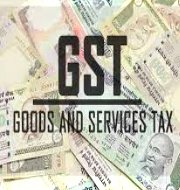GST: Issues around Anti-profiteering Rules
The Section-171 of the GST Act, states that “any reduction in rate of tax of any goods or services, or any benefit of “input tax credit” must be passed by the firms/companies to customers”. For example, if a firm is paying Rs 500 less for procurement of an intermediate good or raw materials for the final product, as per new GST rates; then the firm cannot avail that Rs. 500 as benefit, and has to sell the final product at Rs 500 less to pass on the benefit of GST to customers. This is called anti-profiteering.
Importance of Anti-profiteering Rules
In recent years, when countries such as Singapore and Australia implemented GST rules in their economy, they witnessed a shoot in the prices of several goods and services, especially in retail market. On the other hand, Malaysia didn’t face such problem during the implementation of GST rules; the reason being effective implementation of anti-profiteering rules by the country in its economy. Indian government, learning from the experience of above countries, is just trying to avoid the surge in prices of goods and services by implementing anti-profiteering rules. Thus, if you are aware of the fact that the price of a particular product has decreased since implementation of GST, then you can easily file a complaint to the anti-profiteering authority against the seller who is selling the product at higher price stating that it is due to GST.
Government’s stance
GST Council gave clearance to the anti-profiteering provision in June, 2017, to ensure that companies/firms do not quietly keep the GST tax or cost savings on their goods or services. The government has proposed the establishment of National Anti-Profiteering (ABS) authority along with its state level counterpart, to examine consumer complaints and industry data on selling prices.
Mechanism
Government has already formulated the rules to determine profiteering. Further, to clear the confusion on new prices of goods and services under GST, the GST Council has recently formed a Selection Committee under the Chairmanship of Cabinet Secretary to recommend eligible persons for appointment as the Chairman and Members of the National Anti-profiteering Authority.
National Anti-profiteering Authority
- It will be headed by a senior officer of the level of a Secretary to the Government of India
- It will have four technical members from the Centre and/or the States.
- The authority aims to ensure that the full benefits of a reduction in tax on supply of goods or services flow to the consumers.
- The authority also has been vested with the powers to impose a penalty on the defaulting business entity and can even order the cancellation of the firm’s registration under GST.
Working Mechanism
As per anti-profiteering rules, the application seeking anti-profiteering measures against a firm at national level will be examined by a Standing Committee. However, if the application is related to a firm or company at local level, that is, firm located in only one state, then the application will be first examined by a State level Screening Committee. The state level screening committee then can refer the case to the Director General of Safeguards, CBEC, who will then give his recommendation for consideration of the National Anti-profiteering Authority. If the National Anti-profiteering Authority confirms the necessity of action against the firm or the business entity; then the authority can order the firm to reduce the prices or return the undue benefit availed along with interest to the recipient of the goods or services. If the undue benefit cannot be passed on to the recipient, it has to be deposited in the Consumer Welfare Fund. The National Anti-profiteering Authority also has the powers to impose a penalty on the defaulting business entity and even order the cancellation of its registration under GST.
Associated Problems
As per the rules, the authority or standing committee, which consists of only government officials and no representatives from business world, is responsible to decide whether undue benefit has been availed by the firm or not. This is problematic for the businessmen. Further, to decide whether the benefit of “input tax credit” has been passed on by way of “commensurate reduction” in prices or not, is a cumbersome process as it is not defined or discussed in the Act or draft Rules. Many people have also criticised the government’s move calling it a draconian law that would bring back “Inspector Raj” back in the country. Traders and sellers want market forces to decide the prices rather than government to intervene in the price mechanism.
Concluding Remarks
Anti-profiteering rule is a tool that government is using to keep the prices of commodities under check; and constitution of the National Anti-profiteering Authority is to boost the consumer confidence. But since the process is quite complex, government should release some guidelines regarding methodology, calculations and periodicity to make public and businessmen aware of the facts and figures.


